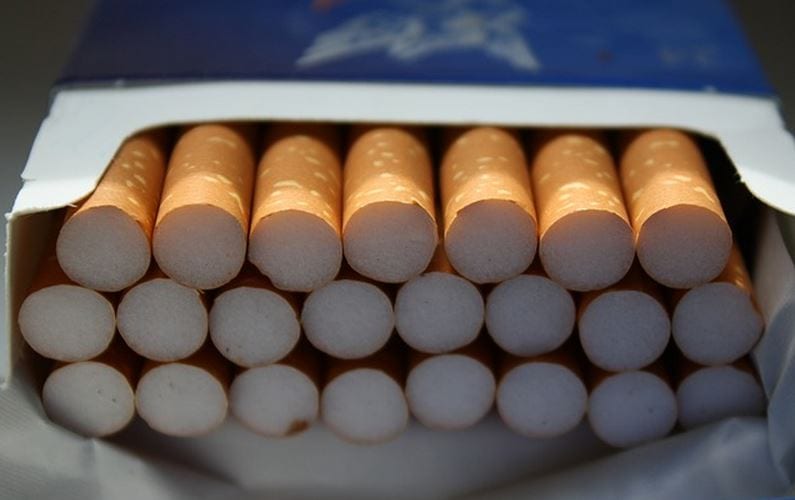Missouri and Kansas rank among lowest spending states for tobacco prevention

Published December 3rd, 2014 at 4:58 PM
States continue to spend a miniscule portion of the billions of dollars they collect annually in tobacco revenues on smoking prevention and cessation programs, according to a new report by six leading health organizations.
Missouri spent $76,314 on tobacco prevention in the latest fiscal year, the report says. The Centers for Disease Control and Prevention recommended it should have spent nearly $73 million.
Only one state, New Jersey, spent a smaller percentage of its tobacco funds on anti-smoking programs. New Jersey allocated no funds for tobacco prevention.
See related story: Kansas, Missouri Smoking Rates Remain Above National Average
“As far as getting the state to invest more, we just have not been successful,” says Mary Kitley, executive director of the American Lung Association’s Missouri chapter.
“The fact is Missouri is just slow to move on any health-related issue. It’s not just tobacco, but tobacco seems like a no-brainer.”
Kansas spent $946,671 in fiscal 2014. The CDC recommended it should have spent $27.9 million. That’s a lower percentage than all but 11 states.
The report, the latest in a series of annual dispatches, was issued by the Campaign for Tobacco-Free Kids, American Heart Association, American Cancer Society Cancer Action Network, American Lung Association, Robert Wood Johnson Foundation and Americans for Nonsmokers’ Rights.
Collectively, states will reap about $25 billion this year from 1998’s landmark $246 million “master settlement agreement” with tobacco companies and from tobacco taxes. But they’ll provide just 14.6 percent of the tobacco prevention funding recommended by the CDC, the report says.
Looked at another way, tobacco companies spend 18 times more to market their products than states do to reduce tobacco use.
Missouri has the lowest cigarette taxes in the nation, at 17 cents a pack. Kansas has the 15th lowest, at 79 cents a pack.
“The bottom line is that Kansas has just never ever really funded anything like that,” says Linda deCoursey, executive director of the Tobacco Free Kansas Coalition.
“All of the funds that come to do anything of that sort of thing (tobacco prevention) come either from the CDC, from the MSA (master settlement agreement) or from some other block grants that we get. They’ve just never done it, and it’s time that they do.”
North Dakota and Alaska are the only states funding tobacco prevention programs at the CDC-recommended level, according to the report. And only five other states – Delaware, Wyoming, Hawaii, Oklahoma and Maine – provide as much as half the recommended funding.
Smoking is the leading cause of death and illness in the United States, accounting for some 480,000 death annually.
In Missouri, 11,000 deaths per year are attributable to smoking. In Kansas, the figure is nearly 3,500 deaths annually.
The report cites a 2011 study in the American Journal of Public Health that found that the state of Washington saved $5 for every $1 it spent on tobacco prevention and cessation programs.


